In the context of the third anniversary of the disappearance of Jean Bigirimana, Iwacu journalist on 22 July 2016, Human Rights Watch expresses its concerns over the press situation in Burundi. Iwacu offers below a copy of the opinion piece by Lewis Mudge, the Central Africa director at Human Rights Watch.
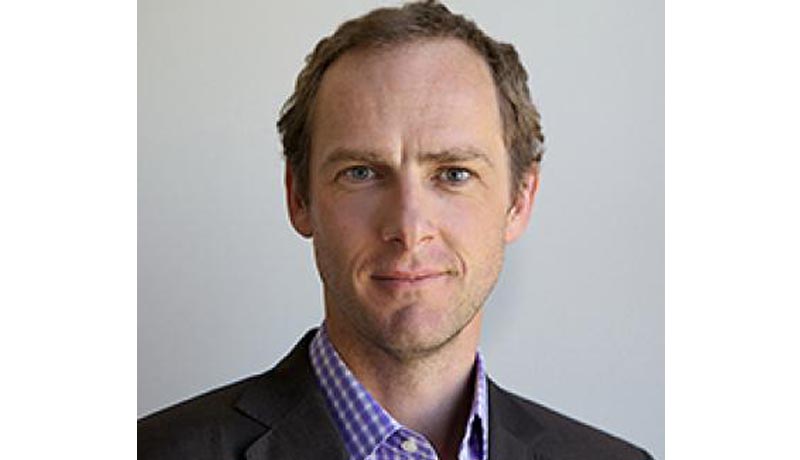
Lewis Mudge is the Central Africa director at Human Rights Watch.
When a journalist we know walks through the streets of his hometown in Burundi, his neighbors often exclaim: “Here comes uwubangamiwe!” Although they say it in jest, the nickname – which means ‘at risk’ in Kirundi – reveals the constant danger he faces.
Three years after his colleague Jean Bigirimana disappeared, he and many other Burundian journalists continue to honor his legacy.
A journalist with Iwacu, Burundi’s last remaining independent newspaper, Bigirimana was on a reporting trip when he disappeared on July 22, 2016. Unconfirmed reports indicated that members of the Burundian intelligence services arrested him in Bugarama.
In early August 2016, two decomposed bodies were found in the Mubarazi River in Muramvya province, not far from Bugarama. One of the bodies was decapitated and the other weighed down by stones. Some speculated that one of them could have been Bigirimana, but local authorities buried the bodies before determining their identities and refused to conduct a DNA test.
Journalists who knew Bigirimana describe a sociable, passionate, and kind man. Appreciated by his peers and sources alike, he was committed to field investigations and giving a voice to victims of abuse.
With dwindling hope of ever finding him alive, his colleagues mourn his loss, a stark symbol of the dangers they face. A journalist in Bujumbura who works underground for an exiled radio station, and whose name, like the other journalists’, I’m not using for their protection, told Human Rights Watch that “I feel great sadness when I think about Jean. It still shocks me, but it shouldn’t stop us investigating or giving a voice to victims. He’s not the only one.”
Scores of other Burundians have disappeared since the country’s crisis began in April 2015. When bodies resurface, most of the time authorities make no efforts to identify the victims or investigate the circumstances of their deaths. Journalists like Bigirimana put their lives on the line to uncover the truth.
Since President Nkurunziza’s decision to run for a controversial third term in 2015, authorities have dealt blow after blow to the media, suspending their licenses, preventing foreign journalists from reporting in Burundi, and banning journalists from communicating “directly or indirectly” with the Voice of America and British Broadcasting Corporation.
After local radio stations were physically destroyed in May 2015, more than 100 journalists fled the country. Once-vibrant stations went off the air, and observers, independent civil society groups, and the United Nations human rights office were forced out until there was almost no one left to speak out. Two human rights defenders – Germain Rukuki and Nestor Nibitanga – have been jailed on charges related to national security, apparently for their human rights work.
But not everyone left. Toiling away in the shadows, some journalists stayed behind. When asked why they didn’t just stop working as journalists, they all answer, as if in unison: “If we don’t write about what’s happening, who will?”
Private radio stations, now based in neighboring countries, use WhatsApp broadcast lists to share daily news bulletins. Exiled groups like SOS Médias Burundi post their on-the-ground journalists’ reports on social media anonymously. Despite such precautions, the danger is pervasive and many fear the worst may still be to come.
Pressure inside the country is mounting, and while Iwacu continues to publish hard-hitting investigations, it regularly comes under fire from the authorities.
With the 2020 elections around the corner, journalists expect the government will find more ways of hampering their work, including increased surveillance and restrictive measures by the government-controlled National Communication Council (CNC), the state’s media regulator. The recent appointment of a former Imbonerakure chief – who oversaw the ruling party’s youth league when they committed egregious abuses – to the head of the state broadcaster sends a chilling message. A current high-ranking official in the national intelligence services and former ministry of defense official were also appointed to the radio’s board.
Since February, when the new opposition party Congrès National Pour la Liberté (National Congress for Freedom, CNL) was registered, SOS Médias Burundi posted over 120 times on Twitter about the #CNL. These posts often include details about killings, disappearances, arrests, and beatings of its members, which have also been documented by Human Rights Watch.
The underground radio journalist we spoke with is worried that his work will become even more difficult, but he is determined to continue: “I can see with the arrest of members of opposition parties that the elections will probably take place in a very tense climate. As the media reporting on these issues, we won’t be spared.”
Journalists working with limited resources and no safety net are a vital lifeline of information for Burundi’s increasingly isolated population, and they are also a link to the outside world.
During our phone call, the journalist from central Burundi recalled the day he found out about Jean Bigirimana’s disappearance: “His death shocked us all. Before, we thought their threats were just intimidation. But when they took Jean, then we knew the risks were for real.”
Unfortunately, three years later, they still are.

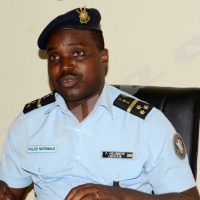
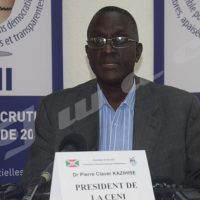
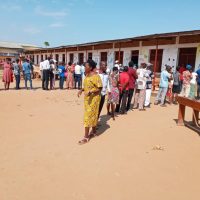
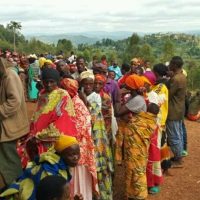
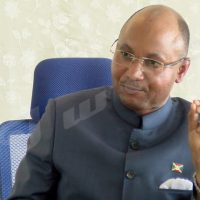













 IWACU Open Data
IWACU Open Data

